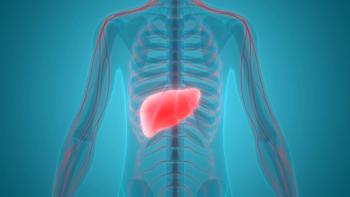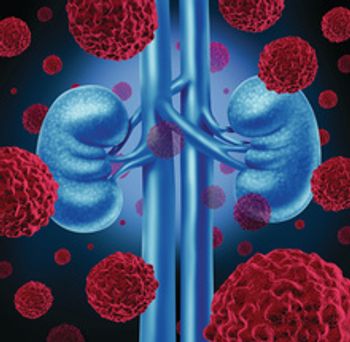
Between 2000 and 2018, the number of pancreatic cancer cases rose, particularly among women between the ages of 15 to 35 years.


Between 2000 and 2018, the number of pancreatic cancer cases rose, particularly among women between the ages of 15 to 35 years.

A final analysis of the phase 3 ClarIDHy trial revealed that OS was superior in patients receiving ivosidenib, despite a high crossover rate from the placebo group.

A recent study identified some of the key challenges in coordinated care for underinsured and uninsured cancer survivors who have initiated the surveillance stage of their journey.

“Previously, this mutation has been undruggable, but this is now changing.”

An expert from The University of Texas MD Anderson Cancer Center recently highlighted the ramifications of the phase 2 ReDOS trial, the need for molecular profiling in mCRC, and ongoing research on the combination of TKIs and checkpoint inhibitors.

The Pfizer-BioNTech COVID-19 vaccine induces similar levels of COVID-19 antibodies in patients with solid cancer compared with people without cancer.

Kristin Barber, FNP-BC, AOCNP, discusses ongoing phase 1 trials aimed at targeting mutations along the MAP kinase pathway.

Cetuximab represents the first approved anti-EGFR antibody which, in combination with encorafenib, is now available to treat adults with pretreated metastatic CRC with a BRAF V600E mutation.

Patients with HER2-positive, metastatic colorectal cancer and higher HER2 expression at baseline experienced improved responses following treatment with trastuzumab deruxtecan.

Adavosertib decreased the risk of disease progression or death by 65% in patients with TP53-/RAS-mutant metastatic colorectal cancer (mCRC).

The FDA approved ivosidenib as the first targeted therapy to treat patients with previously treated IDH1-mutated cholangiocarcinoma.

A combination of encorafenib (Braftovi), binimetinib (Mektovi), and cetuximab (Erbitux) in the first-line setting was tested for efficacy in patients with BRAF V600E–mutant CRC.

New data emphasizes need for routine brain imaging in patients with advanced or metastatic renal cell carcinoma with prior treatment and high metastatic burden.

Researchers observed a similar tumor size reduction between 2 arms of patients with hepatocellular carcinoma who were stratified by their liver function class and treated with lenvatinib.

The aim of the two ongoing studies is to determine the optimal sequence of therapies in the second-or later-line treatment settings for patients with hepatocellular carcinoma.

A combination of cabozantinib and atezolizumab improved the PFS in patients with Advanced HCC

A study of 2 cohorts shows that the combination of regorafenib and pembrolizumab is effective in generating anti-tumor activity in patients with HCC.

Phase 3 KEYNOTE-564 trials demonstrated that single-agent pembrolizumab resulted in improved DFS in comparison to placebo group.

Survival outcomes in the frontline treatment of patients with unresectable advanced or metastatic esophageal squamous cell carcinoma were improved when nivolumab was added alongside either ipilimumab or chemotherapy.

Gunagratinib (ICP-192), a potential therapeutic option for patients with cholangiocarcinoma, has been granted an orphan drug designation by the FDA.

KRAS mutational status and geographical region were associated with time on treatment (TOT), and body mass index (BMI) and age were linked with overall survival (OS) in patients with metastatic colorectal cancer mCRC) being treated with second-line cetuximab (Erbitux) after irinotecan or oxaliplatin-based regimens.

Public health efforts must address new methods of cancer screening, an expert says.

The FDA approved adjuvant nivolumab for the treatment of patients with resected esophageal or gastroesophageal (GEJ) cancer who have previously had neoadjuvant chemoradiation treatment.

The United States Preventative Services Task Force now recommends colorectal cancer screening to start at 45 years old.
